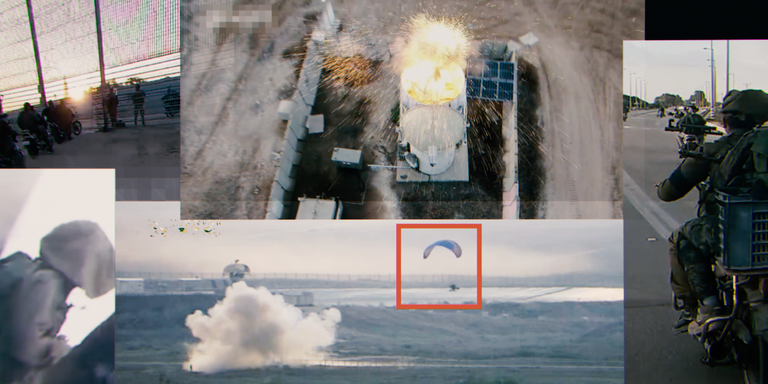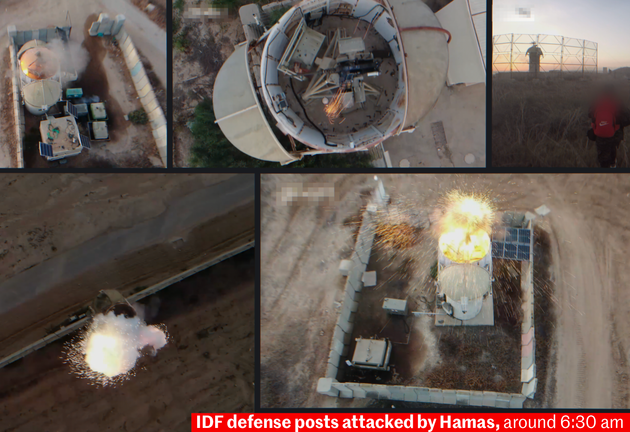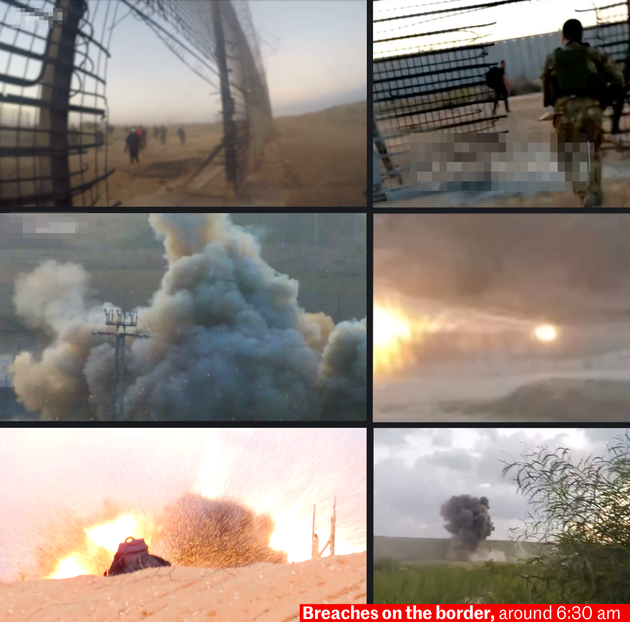


Israel-Hamas war: Images reveal the strategy behind the militant group's attack
VideoNumerous images, from CCTV to Hamas propaganda, document the attack on Israel on Saturday, October 7. Le Monde has verified these images to reconstruct Hamas' Operation Al Aqsa Flood.
The sun had not yet risen in Gaza when Hamas launched Operation Al Aqsa Flood on Saturday, October 7. Dozens of the organization's fighters advanced toward the Israeli border by car, motorcycle and on foot. They blocked cameras and defense systems and made at least seven breaches in the wall separating the two territories.
Once through, the fighters simultaneously attacked at least six IDF military bases and seven civilian areas, including a town, five kibbutzim and a music festival.
Using analyzed and verified images, Le Monde has reconstructed the group's master plan behind Saturday's attack, which involved lightning raids, simultaneous assaults and preparation.
Border taken by storm
The border between the Gaza Strip and Israel consists of either high fences or a concrete wall. Its towers are guarded by remotely operated machine guns, so, to cross it, attackers have to neutralize its defense posts. Of the five posts filmed by Hamas militants, four were destroyed by an explosive device dropped from a drone.

Also using drones, Hamas targeted telecoms infrastructures, such as a pylon near the Be'eri kibbutz. The aim: To cut off the Israeli army as quickly as possible.
Elsewhere, by car, motorcycle and on foot, Hamas began its assault on the border. Some breaches were made by using hand-laid explosives, like near the Be'eri kibbutz. In a satellite image taken at the Erez Crossing, north of the Gaza Strip, a breach in the concrete wall separating it from Israel and two partial destructions could be seen.
Once the border was opened, Hamas militiamen crossed it on all-terrain vehicles (ATVs) and small motorcycles. At Kerem Shalom kibbutz, near the border with Egypt, the space cut into the fence was only wide enough for the motorcycles to get through.

Images show that at least a dozen groups of Hamas militiamen had entered Israeli territory before 7 am. Less than an hour later, they simultaneously launched at least 13 assaults on military camps and civilian areas.
Israeli soldiers taken by surprise
At least six permanent IDF military bases were attacked at the same time, between 6:30 and 8:30 a.m. They included the Erez Crossing, the Nahal Oz military base, the base near the Be'eri kibbutz, the Sufa outpost, the Re'im base and a facility near the Kerem Shalom kibbutz.
Armed with grenades, rocket launchers and extended firearms, Hamas militiamen penetrated the bases. They killed Israeli soldiers, captured others, and filmed themselves triumphantly next to their bodies. At the Nahal Oz base, they used a drone to drop explosives on groups of soldiers and armored vehicles.
You have 53.36% of this article left to read. The rest is for subscribers only.
